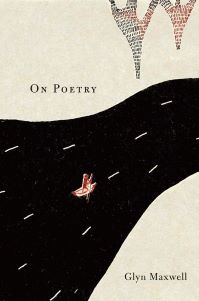The nerdiness of sabbaticals and returning to long-ago haunts.

All week, I’ve been an EKG in the heartland, a slick of oil in the streets of Tulsa, a boastful uncle at the volleyball games of my nieces, a rebounder at morning basketball practice, a poetry teacher, an organizer of writing prompts and recruitment, and a scholar in search of ways to learn about Oklahoma’s historical all-Black towns.
Sabbatical has made this trip and all its litanies possible. I drive up from Ft. Worth, Texas, with my mother, all the while listening to Les Misérables. My mom stirs into interest at the priest who, in his forgiveness of theft, “buys [Jean Valjean] back to God.” I also stir at her stirring, fighting off fatigue from a four-hour drive and the weekend’s DFW Writers Conference. Everything seems to be elongating — the road, the pauses between coughs as we listen, the darkness of the evening as we drive. Despite this, I am eager (and somewhat impatient) to get to Tulsa to visit my brother, his family, and an old professor at my alma mater.
Twenty years ago, I came here on scholarship to study acting. I left an emerging poet. It’s been years since I was in Oklahoma at a time of year other than the winter holidays. Every day, I wake up around 5 a.m. to the sound of each of my athlete nieces getting ready for school and morning practices. Every day, I post a new writing prompt to help folks know an inch more about the MFA at the University of Baltimore. Every day, I check my blood sugar with confidence.
The city of Tulsa is and isn’t as I remember. New buildings but the same sky. Different restaurants but the same accent. Division 1 and divinity are the most sacred words around. Among all that memory, I am meeting with scholars around town to discuss my third book project, about the 50 free Black towns in pre-statehood Oklahoma, when it was still called Indian Territory. There is such a gracious nerdiness and much less suspicion than I expected as I ask about what might’ve been if the towns hadn’t diminished under the thumb of systemic racism and the Industrial Revolution. Contacts are made. A joke or two passes among us like a tethering line. I imagine a different life.
I make sure that my favorite bookstore, Magic City Books, gets a grip of my money — though some of my purchases are enamel pins instead of publications, and a wry T-shirt that says “Booklahoma.” Everywhere, there are gentle reminders of how an artist must move within the textures of “retail politics.” An affable tone, a genuine attention, and an ease are my way but haven’t always been. I’ve learned how to ask for and pitch a reading with confidence. I’ve learned to accept that not everyone will love you. But, oh, when they do — when someone reads your poems unprompted, when there is care in that reading and honest-to-God praise, when you can trust the handshake of someone and a promise to keep in touch — that is a Balm of Gilead.
Ultimately, there is a discursive prompt here: Write, with gratitude, about the return to your college town and all the triumphs and disappointments and lost loves and pivoted dreams and whatever else we artists obsess over without cessation.
Steven Leyva’s poetry collection is The Understudy’s Handbook.

